Poetry
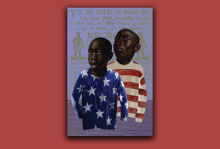
The permanent shiny smudge replaced his bronze face,
his features fade in rusted pictures
I play with pigeon feathers picked from pages
on pulpit splinters that bear his cross of puzzled words.
Warriors unite rage, usher 10% offerings
to dear Black children morning, school wombs empty
Sheets untie laid to rest over waving hands
and church pews ready to fly away with sermons
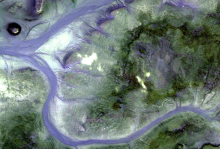
I am the angel who heard their euphony:
the Hebrew prophet’s words turning to
lamb
topaz on Ethiopian tongue, their voices
wedded together, gleaming
knife
beneath the desert sun. Imagine it:
you are Qinaqis, born beside
ewe
the Gihon River that once flowed from
Eden, marked for exile
mute
from family, from choice,
from even the faith
sheared
you one day will embrace,
despite your pilgrimage through
torment
the wilderness.
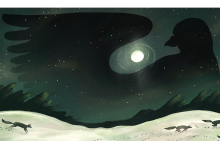
Each word I choose
carries a different rucksack load for each of you
like I’m the fox slinking along rail lines
thinking by instinct & appetite & you’re
the commuter passing through
like I’m the moon whose same beams call
to a weeping child to a prowling owl
to shivering rodents in the grass
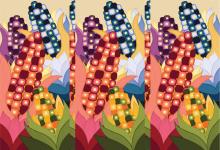
I will teach you by the river,
I will name the place to meet,
how quick is the water;
I am the harvest: come gather and eat!
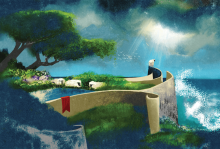
I’ve told you there are wolves out here.
Don’t you believe me?
You could fall in a hole
too deep to climb out of.
You could slip on wet rocks
and fall into the river and drown.
Good thing I noticed
your pink nose was missing.
Good thing I turn around
to check on what’s behind me.
Remember that leading the flock
I look forward to find tender grass.
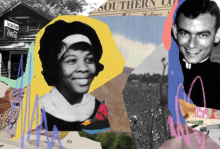
Who is scorched worse,
the one who dives to take the bullet,
the one who shoots,
or the woman spared?
Take Ruby Sales, for example—
how she and Jonathan Daniels,
thirsty from heat and the Hayneville jail
stop for a cold soda on their way out of town.
Deputy Tom Coleman is angry, is ready;
he aims his gun pointblank at Ruby.
Daniels sees it coming, pushes Ruby over
throws his body in bullet’s path.
Editor's note: Sales, founder of the SpiritHouse Project, is a nationally recognized human rights activist and public theologian. Coleman was acquitted of the death of Jonathan Daniels by an all-white jury and died in 1997.
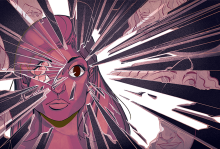
We wander round searching for demons
and making them of each other
when we find none. Out of feigned necessity,
the slightest difference becomes a reason
to tame—to vanquish—to stamp out until
we look up and catch sight of ourselves:
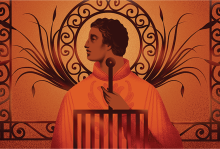
Lorenzo was mortar for the church
he built, gathering wild birds
for the rafters and fruited trees
for their food. He carted stone
and hoisted, he pestled, he block-
and-tackled. Persecuted
by Valerian and about to be
arrested, Lorenzo goat-herded
the church’s wealth, distributed it
to the poor. He paid the unmade
orphans, clothed the lepers
in money. He sold the sacred
vessels, the varied trestles.
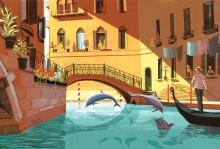
If we believe nature will mend,
it will replenish what has been taken and,
answering the wild call of urban space,
dolphins will return to Venetian canals,
elephants will drowsy dream in Chinese tea gardens,
humans will shed their fear and guilt to hope and taste
the terror of responsibility
the terroir of ourselves
the terra ignota of a paradise where
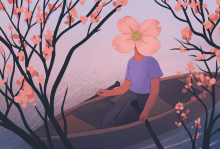
Keep your eyes on your work. Looking
at a dogwood does not make you blossom.
Nor can a bridge of sighs span an ocean
of despair. For that, you need oars
and strong arms. Labor as long
as it is still called today. Yes, Faith
could have worn other metaphors,
but instead it rose from the dead
and asked questions: Why are you
crying? Who are you looking for?
Do not fear. Answer. The Risen One
speaks your language.
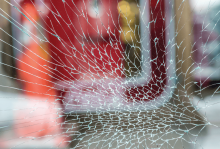
Crossing a river in Africa the spider
shooting her blacksmith’s thread
of melted-down swords and armor
the world’s molten madness bridging
dangling over the water
The creature moves frantically
and to an observer miraculously
like some stressed-out downtown commuter
levitating to work
surely this is a phantasmagorical
outpouring of mighty engineering
Golden Gate sprung from a thimble
that you would never believe
if it hadn’t bored you in second grade
like the kindness of Jesus Christ
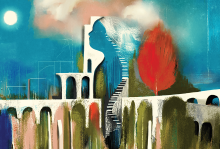
I mispronounce my body as if
the architecture of the spine
were soft, as if this poem could
start here,
in the space between open lips,
even though it resists a title.
To be means to exist
with a name. To be means
to have a body worth defining.
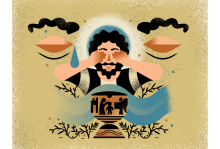
I rub my hand across the stone font
Where Jon Meacham took on the water
Of baptism and signed on to the cross
In an olive oil signature made for words.
The empty sanctuary now quiet for prayer echoes
With last night’s lecture on the future of democracy.
Light pours through the stained glass window
With a narrative of Saul, struck down blind
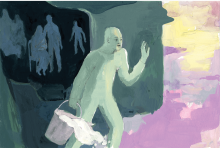
I reckon it was the girl,
not more than fourteen. Those eyes.
Something made him stop his talk,
hoist down the lantern and mutter out with them.
And that was one sour night—
dust and wind, things banging;
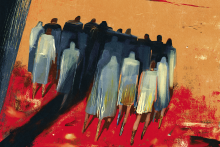
We shudder at the inhumanity,
the crafted cruelness of that sickening show:
the stripped humiliation, blasphemy
of beaten flesh, death’s agonies stretched slow
by fellow men created in God’s image,
turned terrorists, enslaved to sin’s strange fruit.
How could they mock the marred and lifeless visage
of God’s own child? His axe is at the root!
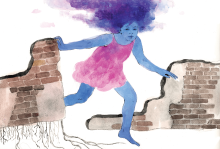
Call this hair crazy.
but watch as it grows
outside of your gates
and beyond the walls
you’ve made to contain
me. See as it reaches
higher than anything you
ever thought of me,
shedding every lie of
inferiority.
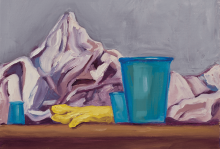
The field, still and breathless,
colored in thirsty hues of yellow,
sits beneath hills just as bleak,
the whole land scoured in disinfectant
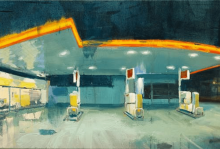
The later it gets, the more nothing.
—Woman at the register
Yeah, we’re open ’til midnight,
but few customers come after 9:00.
I like when it’s slow and quiet—
just me and the store lights.
I don’t like the sirens
racing along Main Street.
I always worry it’s my kid hurt
or my best girlfriend with another
black eye or busted rib.
When I’m here by myself, I draw
dress patterns for my daughter.
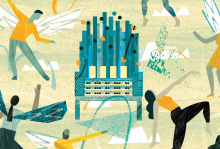
(“Oh I’ll leap up. Who pulls me down?”—
“Doctor Faustus,” by Christopher Marlowe)
Now can I join this dance?
See, I am thinner than vacuum.
I can kneel toward the sun
at the very angle of prayer
and feel the counterpoint
pulse through my veins.
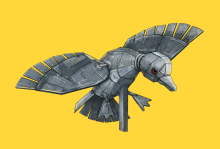
Some mornings I drive to the duck pond
instead of writing poems. I can’t remember
how to keep words coupled to the truth.
So much lying has torn words loose
from what they stood for. Remember,
back when we agreed on their meanings?
I’d say honey for instance, and you could
taste it. Once you said freedom
and I saw doves rising from your shoulders.
We shared language so we were not alone.
We both loved words as if we could see them:
like ducks bobbing on a pond, dipping,
scooping, swabbing insects from the air.